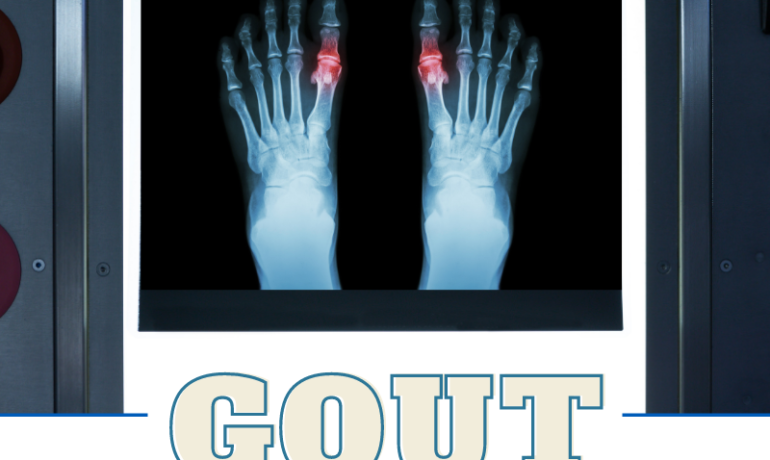Although it affects 8.3 million people in the United States1, gout is a condition that not many people know a lot about. Yet, as the number of cases continues to rise, our arthritis and rheumatology experts in Hamilton, Sewell, and other parts of New Jersey feel that this is an important topic to cover. Let’s take a deep dive into this disease and see what the doctors at ARBDA can do to help.
What is Gout?
Gout is a form of arthritis that causes inflammation and severe pain. In most cases, it affects one joint at a time, starting with the big toe joint. The most common symptoms of gout are:

Worsening symptoms are known as flares or gout attacks, and they can be extremely painful — sometimes even debilitating. It’s very difficult to predict when flares occur, as gout attacks often happen suddenly and last anywhere between a few days to weeks. Most afflicted individuals describe gout attacks as feeling like their foot or other affected area is on fire.
The flare is followed by a remission period, where the patient doesn’t experience any symptoms. This can last weeks, months, sometimes even years, before another flare occurs.
What Causes Gout?
Gout is caused by excess uric acid most commonly found in the joints but other body parts as well. Uric acid is released when the body breaks down purine, a chemical compound found in food and, especially, alcoholic beverages. Other foods high in purine include:
- Bacon
- Red meat
- Organ meat (liver, kidneys, etc.)
- Anchovies
- Mussels
- Shrimp
- Sardines
- High-fructose products
Normally, uric acid is released in urine. However, if the body generates too much or the kidneys don’t release enough of it, uric acid can build up — this condition is known as hyperuricemia. By itself, hyperuricemia does not cause any symptoms and doesn’t need to be treated, unless it develops into gout, which is not always the case.
Uric acid is extremely sensitive to temperature changes. In cooler parts of the body, like the feet, uric acid will crystallize, leading to inflammation and pain.
What Treatment Options are Available?
Unfortunately, there is no cure for gout. On the bright side, however, certain lifestyle changes and medications may help in treating and preventing gout. The key to finding relief from this condition is to speak with your doctor.
The rheumatologists at ARDBA have extensive experience diagnosing gout and developing comprehensive treatment plans specifically suited to individual needs and lifestyles. If you experience gout attacks, please consult with an ARBDA rheumatoid pain doctor in NJ. Treating gout early can prevent this condition from developing into gouty arthritis.
Contact us today to schedule an appointment at any of our six New Jersey locations.
https://www.medicalnewstoday.com/articles/325290#How-common-is-gout

